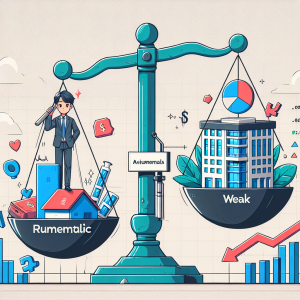The recent announcement of sweeping tariffs under the Trump administration has sent shockwaves through global markets, with Dow Jones futures tumbling significantly as investors react to the potential economic ramifications. As the tariffs take effect, market participants are grappling with the implications for trade, inflation, and overall economic growth. This development comes at a time when the financial landscape is already marked by volatility and uncertainty.
The Dow Jones Industrial Average (DJIA), a key indicator of U.S. economic health, has seen a sharp decline in futures trading, reflecting investor anxiety. The DJIA, known for tracking 30 prominent U.S. companies, is particularly sensitive to changes in trade policies, given its composition of major industrial and consumer goods firms. As tariffs could increase costs for manufacturers and consumers alike, analysts are closely monitoring the index for signs of sustained downturn or recovery.
In conjunction with the decline in futures, yields on U.S. Treasury bonds have jumped, signaling a shift in investor sentiment. Higher yields often indicate expectations of increased inflation, which could be exacerbated by the newly imposed tariffs. This situation poses a challenge for the Federal Reserve, which has been attempting to balance economic growth with inflation control. As yields rise, borrowing costs may increase, potentially dampening consumer spending and business investment.
Additionally, the broader global economic context reveals a mixed outlook. While some sectors, like energy and real estate, have shown resilience, technology stocks are experiencing a slowdown. This divergence highlights the complexities of the current market environment, where geopolitical tensions and economic policy shifts are influencing investor behavior. In Singapore, the financial landscape remains robust, with the city continuing to serve as a strategic hub for international finance. The presence of Dow Jones offices underscores Singapore’s importance in global market dynamics.
As investors navigate this turbulent period, investment strategies are evolving. The DJIA offers various avenues for engagement, including index funds and exchange-traded funds (ETFs). These instruments allow for both direct investment and hedging opportunities, catering to a range of risk appetites. The current market conditions may also spur interest in sectors that can benefit from the ongoing economic shifts, particularly those focused on innovation and technological advancement.
In conclusion, the onset of sweeping tariffs under the Trump administration has led to significant market reactions, with Dow Jones futures falling and bond yields rising. As the global economy grapples with these changes, investors must remain vigilant and adaptive, leveraging opportunities while managing risks in an increasingly complex financial landscape.





